Allie Anton
Allie Anton got her BA in Philosophy from Ave Maria University, M.Litt in Shakespeare from Mary Baldwin University, and her love of fairy tales from Tolkien and Chesterton.
Contributor III
- Plebian Penman
- Common Writer
- Lurker
- Pssst
- Sharp-Eyed Citizen
- Town Watch
- Animator
- Well Read
- Article of the Month
- ?
- Articles
9 - Featured
9 - Comments
27
- Ext. Comments
24 - Processed
21 - Revisions
17
- Topics
16 - Topics Taken
0 - Notes
18
- Topics Proc.
16 - Topics Rev.
1
- Points
2428 - Rank
62 - Score
1156
Latest Articles
Latest Topics
Motion Capture and the "Uncanny Valley"Since its technological and artistic breakthrough in the character of Gollum from Lord of the Rings, filmmakers have experimented with the possibilities and limits of the technology, with varying success. From single characters (like King Kong) to whole races and worlds (like Avatar and several Robert Zemekis films), motion capture elicits anything from wonder in the face of its breathtaking realism, to criticisms that overuse of the technology dumps the audience smack dab in the center of "Uncanny Valley." Why does motion capture draw from critics and audiences such polarizing responses? What films use the technology wisely, and which overuse it to the extent of alienating its audience? Look at both the original instances, like Gollum, and more recent instances, such as Alita in Alita: Battle Angel, and analyse how the different instances work and how they avoid or encapsulate "Uncanny Valley" in their films and characters.
|
Ophelia as Protagonist: Elsinore (2019) vs. Ophelia (2019)The recent film Ophelia (2018), starring Daisy Ridley, and the crowdfunded video game Elsinore (2019) marks the latest in an increasingly popular trend of adapting Hamlet by shifting its focus from its conflicted titular character to his doomed lady love. While adaptations focusing on supporting or minor characters in Hamlet are by no means uncommon (with Tom Stoppard's Rosencrantz and Guildenstern Are Dead as the most notable example), the focus on Ophelia in particular is something new. Ask: why the especial focus on Ophelia, ever-popular in art, as a protagonist? What about Ophelia made it universally panned while Elsinore has been almost universally praised? Which version offers a more compelling take on the character and the story of Hamlet?
|
"Alice in Wonderland" in Adaptation: What Makes it so Difficult?Lewis Carroll's nonsense novel has seen endless variation in adaption across all forms of media, but how many of these are actually successful? Look at both the more faithful adaptions (Disney, the 1999 TV Movie), and the "darker" or somehow radically different ones (American McGee's Alice, The Looking Glass Wars). Compare some of the adaptions which are similar in tone, like Tim Burton's recent film and American McGee, or the Disney film and the TV Movie, with an eye for determining, which one does what it's trying to do better (e.g., a faithful translation from book to film, a darker take), while examining what makes adaptation of this novel so difficult.
|
1970's Film and the Failure of the Studio SystemKnown as the "maverick" or "auteur" era of American film, the 1970's represented a unique era of American film-making, perhaps the most experimental since early silent ear. Traditional musicals, melodramas, and epics were no longer drawing in audiences, and, desperate, studios began giving money to fledgling directors often fresh from the brand new film schools cropping up, leading to far more daring and unusual films, such as Taxi Driver, the Godfather, and Star Wars. Well documented as this period is, take some time to examine the period just preceding, and how it enabled these films to exist at all.
|
Fairy Tales in Film: A Lost Cause?Despite its popularity in the written world, fairy tales are notoriously difficult to adapt to the big screen, especially live-action film. While the fantasy epic can see great success (though even that took decades of box-office failure), why is it so rare for a live-action fairy tale film work while animated fairy tales are among the best movies studios like Disney have ever made?
|
Evolution of the Elf in Fantasy LiteratureThe tall, noble and beautiful elf has become almost a cliche in fantasy at this point, but this was not always so. As Tolkien traces in his landmark essay, "On Fairy Stories," from Spenser's "The Faerie Queene" and Shakespeare's "A Midsummer Night's Dream" up to his time, elves had been diminutive creatures of mischief, cutesy and not worth taking seriously. Beginning with Tolkien, and his reliance on Northern European mythology to craft his legendarium, analyze this shift in the treatment of the Elf, and what it meant for fantasy as a genre. Also, compare Tolkien's Elf with a more modern one, and look at recent deviations of the now archetypal elf.
|
Updating Jane Austen: When Is It No Longer Worth It?Take a specific case, such as Jane Austen's Pride and Prejudice: one of the most popular of the classic novels, it has been subject to various reinterpretations which of course include the occasional modernization. But updating such a novel comes with a hefty set of challenges, not the least being this: is there anything Lydia could do in our time which would ruin her sisters prospects as completely? That is, the social norms and stigmas from Austen's time to ours are so different, is it possible to construct a modern analog for this novel? Is it worth it?
|
Film and Television After 9/119/11 was the most devastating terror attack on American soil, and consequently its repercussions are still felt 15 years later. Examine how 9/11 influenced American media, in both the immediate aftermath and more long-term reflections. Don't focus just on films and TV shows about 9/11, but look more at how it informed film aesthetics, story-lines, and how we depict terrorism and political issues in film and television (e.g., how depictions of destruction changed in the advent of 9/11, analyzing the 9/11-like imagery of films such as Spielberg's War of the Worlds, and the DC Cinematic Universe). Focus on specific themes these films tackle in the wake of 9/11, such as PTSD, fear of the unknown threat, and, again, the proper response to terrorism.
|
Latest Comments
| Subtitling for Cinema: A Brief History | |
Adaptation is such a tricky topic, liable to make everyone mad, at some point. I liked your dexterous handling of these often thorny issues and questions. There really are no easy answers. For myself, I find I don’t mind loose adaptations of fairy tales (considering their multitudinous variation) or frankly mediocre novels/stories, but the better something is the trickier the issue becomes (though as regards fairy tales, I think even the darker ones can be more nuanced than most people assume). At bottom, I think, even if you veer widely off from the narrative events of your source material, it is important to respect the major themes of the work, and what the author was attempting to convey (hence, my hatred of Frozen). But again, a thorny issue deftly handled. | The Art of Adaption |
What a fascinating analysis! I’m not a gamer myself, but your thorough and philosophically informed examination of these games made me wish I was. Having majored in philosophy myself, I appreciated how clear, accessible, and yet thorough and precise your discussion of these often esoteric topics was. | Video Games That Ask Deep Philosophical Questions |
Hey there! I’m sorry for neglecting your comment for so long–my life has left little time for the Artifice. But, since I love spreading the greatness of Chesterton, here is a link to a PDF version. The essay is ina collection of his works called Generally Speaking, and is entitled “On Sentiment” and found on page 94 (it’s from a more obscure collection, so it’s a bit difficult to find. However, the collection is on Amazon, with many more of his wonderful essays): http://www.cse.dmu.ac.uk/~mward/gkc/books/Generally_Speaking_scan.pdf. | The Problem of Peter Pan: Should Choices Hurt? |
I’m just getting into to Studio Ghibli, but I think your piece provides a nice introduction for anyone wanting to begin getting into it. | The Magic and Artistry of Studio Ghibli's Films |
Thanks for this most informative piece! I knew some about Bollywood film, but that all that much, and I like how you gave a historical context for Bollywood, something most who discuss Indian cinema neglect. | Bollywood 101: A FUN Guide to Indian Cinema |
My dad and younger sisters watched it, and I sat in for the last episodes of season 2 and, holy crap, was it painful. My brother loves it, but we found the cheesiness and overdoses of DRAMA almost too much to endure. None of us could fathom how such a cheesy, cliche-riddled and cheap-looking show could be as popular as it is. But your comparison, if this to the 60’s Batman, sheds some light on the phenomenon. I still think it’s a crappy show, but I can respect now a little bit more for what it is, and understand the appeal at least a little bit better. | "The Flash" as the Modern Equivalent of 1960's "Batman" |
“Carrie” could almost be considered a modern take on the ‘Revenge Tragedy’ (i.e., Hamlet), honestly. | Carrie White: Horror's Most Relatable Anti-Heroine |
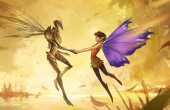
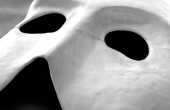
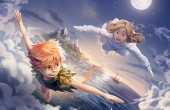
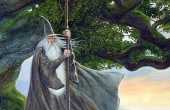
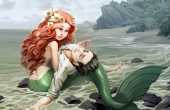
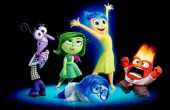

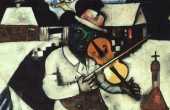
Great analysis! I confess, I never understood the widespread distaste for subtitles. Maybe I read fast, but I never found them distracting. Besides, if modern actors insist upon mumbling their lines, for home viewing at least, subtitles are going to be a necessity.